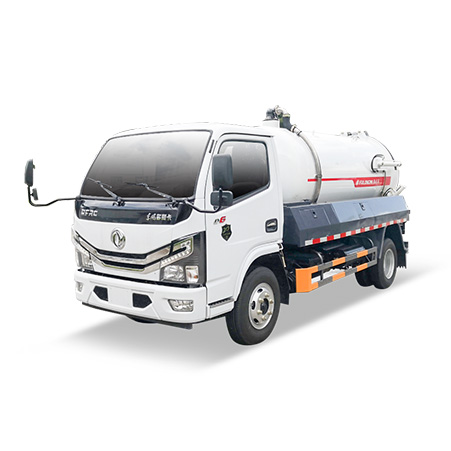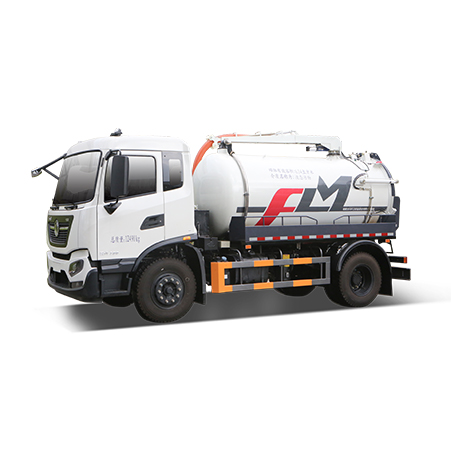Sewage pump trucks are essential components of modern waste management systems. They transport liquid waste from septic tanks, cesspools, and other containment units to treatment facilities. Without these trucks, the sanitation infrastructure of cities and towns would falter, leading to severe public health issues.
Understanding Sewage Pump Trucks

Sewage pump trucks are complex machines composed of several key components that work in unison to perform their function. Understanding these components is the first step toward effective maintenance.
- Pump: The heart of the truck, responsible for suctioning and discharging waste.
- Tank: A large container that holds the collected waste.
- Hoses: Flexible tubes that connect the pump to the waste source and the tank.
- Control Systems: Electronic and mechanical systems that regulate the operation of the pump and other components.
Routine Maintenance
Daily Checks
- Fluid Levels: Check and refill oil, coolant, and hydraulic fluids.
- Hoses: Inspect for leaks or damage.
- Tire Pressure: Ensure tires are properly inflated.
Weekly Maintenance
- Filters: Clean or replace air and oil filters.
- Pumps and Valves: Inspect for wear and tear and ensure they are functioning properly.
- Electrical Systems: Check battery connections and lighting systems.
Monthly Maintenance
- Oil Changes: Change the engine and hydraulic oil.
- System Checks: Perform comprehensive checks on the pump, tank, and control systems.
- Safety Equipment: Test safety features such as emergency shutoffs and alarms.
Seasonal and Long-Term Care
Different seasons pose unique challenges for sewage pump trucks. Proper preparation can prevent damage and ensure longevity.
Seasonal Maintenance
- Winterizing: In colder climates, ensure the truck is winterized by adding antifreeze to systems, inspecting heaters, and protecting exposed components.
- Summer Care: In hot climates, check cooling systems, and ensure proper ventilation to prevent overheating.
Annual Servicing
- Professional Inspections: Schedule a thorough inspection by a certified technician to address any underlying issues.
- Component Replacement: Replace any parts showing signs of significant wear.
Troubleshooting Common Issues
Despite regular maintenance, issues can still arise. Here are some common problems and their solutions:
Pump Problems
- Loss of Suction: Check for blockages in the hoses or the pump itself.
- Overheating: Ensure proper fluid levels and check for obstructions in cooling systems.
Hose and Valve Issues
- Leaks: Replace damaged hoses and ensure connections are tight.
- Valve Malfunctions: Clean or replace faulty valves.
Engine and Electrical Problems
- Starting Issues: Check battery connections and charge levels.
- Electrical Failures: Inspect wiring for damage and ensure all connections are secure.
Best Practices for Optimal Performance
Maintaining optimal performance requires adherence to best practices:
- Regular Cleaning: Clean the truck after each use to prevent buildup and corrosion.
- Proper Use: Operate the truck according to manufacturer guidelines to minimize wear.
- Record Keeping: Maintain detailed records of maintenance activities and inspections.
Safety Considerations
Safety is paramount in the operation and maintenance of sewage pump trucks:
- Personal Safety: Always wear protective gear and follow safety protocols during maintenance.
- Environmental Safety: Take measures to prevent environmental contamination, such as using spill containment systems.
The Role of Technology in Maintenance
Advancements in technology have revolutionized the maintenance of sewage pump trucks:
- Diagnostic Tools: Modern diagnostic tools can quickly identify issues, reducing downtime.
- Remote Monitoring: Remote monitoring systems allow for real-time tracking of truck performance, enabling early detection of potential problems.
Conclusion
Regular maintenance and care are crucial to the reliability and efficiency of sewage pump trucks. By understanding the components, performing routine checks, preparing for seasonal challenges, and leveraging technology, you can ensure these vital vehicles continue to serve their essential role in waste management.
FAQs
How often should the oil be changed in a sewage pump truck?
The oil should typically be changed every 3,000 to 5,000 miles, or as the manufacturer recommends.
What are common signs of pump malfunction?
Common signs include loss of suction, unusual noises, and overheating.
How can I winterize my sewage pump truck?
Add antifreeze to the system, inspect heaters, and protect exposed components from freezing temperatures.
What should I do if my truck’s hose is leaking?
Replace the damaged hose and ensure all connections are secure.
How can technology help maintain sewage pump trucks?
Modern diagnostic tools and remote monitoring systems can quickly identify and address issues, reducing downtime and improving efficiency.








